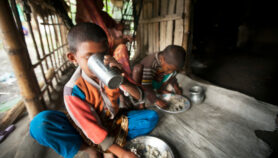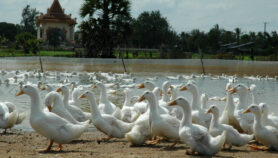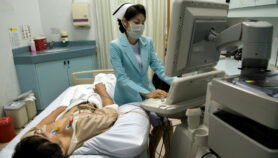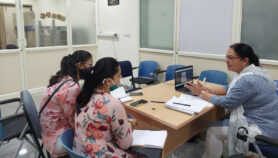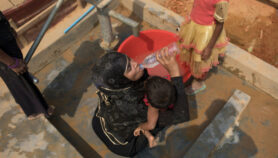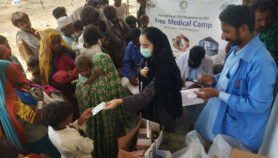By: Tarek Kapiel
Send to a friend
The details you provide on this page will not be used to send unsolicited email, and will not be sold to a 3rd party. See privacy policy.
[RIYADH] Three approaches are under way to prevent and treat the Middle East Respiratory Syndrome-Corona Virus (MERS-CoV) — vaccines, antibodies and small-molecule drugs.
This was according to In-Kyu Yoon, deputy director general for science at the Seoul-based non-profit International Vaccine Institute (IVI) which co-organised, together with the Kingdom of Saudi Arabia Ministry of Health, a 2-day MERS-CoV vaccine workshop (14-15 November) in Riyadh to develop a road map to fight the virus.
The virus first appeared in Saudi Arabia in September 2012, with 1,275 cases and 547 deaths recorded in the country since then. Outside of the Middle East, South Korea this year suffered the worst outbreak of MERS-CoV, with 186 confirmed cases and 36 deaths.
“Most likely, elements of all three approaches will be useful, separately or in combination, depending on the circumstances,” Yoon tells SciDev.Net.
“The discovery of the vaccine could take months, even years, and any announcement otherwise is mere media hype.”
By Rafick-Pierre Sékaly, Case Western Reserve University in Cleveland
He notes that the development of any vaccine requires substantial and sustained resources and interest to support basic research, pre-clinical studies, human clinical trials and manufacturing processes.
“With MERS, there is the added complexity the disease typically occurs as sporadic outbreaks, which make it more challenging to pre-plan for studies to demonstrate vaccine efficacy. But all of these issues can be overcome and several promising MERS vaccine candidates are in development using different vaccine designs,” Yoon adds.
Abdulaziz Bin Saeed, Saudi health undersecretary, says the production of the vaccine faces some fundamental challenges, including specifying the epidemiological form of the disease and its mode of transmission and spread.
Finding a suitable animal model that is similar to humans in receiving the virus and showing its symptoms, including death in case of acute inflammation, is another key challenge in the development of any vaccine.
Mice and rabbits, which are used for such experiments, do not catch MERS-CoV or develop any symptoms. Camels also cannot be used for this purpose since their immunity system is different to a great extent.
However, some workshop participants confirmed there has been some success in using genetically engineered mice in the study of the evolution of the MERS-CoV epidemic. They reported they found a species of small monkeys that can be infected with the virus, opening the way for special experiments on testing new vaccines.
Yet another challenge is the commercial cost of production. Ahmed Hersi, chief of the scientific advisory board of the Saudi health ministry command and control centre, opines this is difficult to predict and that the development and production of new vaccines are very costly.
Hersi says the fact that “the market awaiting the vaccine will not be great or attractive to global investment” complicates the process.
Rafick-Pierre Sékaly, a professor at Case Western Reserve University in Cleveland, United States, expects that the cost of developing the vaccine will not fall below US$100 million.
As to when the vaccine will come out, Bin Saeed tells SciDev.Net: “The discovery of the vaccine could take months, even years, and any announcement otherwise is mere media hype.”
This piece was originally produced by SciDev.Net’s Middle East & North Africa desk, with additional inputs from the South-East Asia & Pacific desk.





